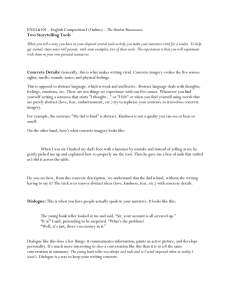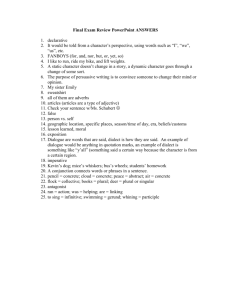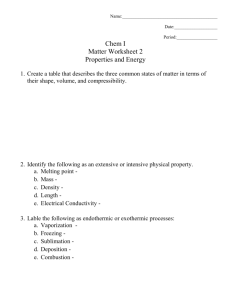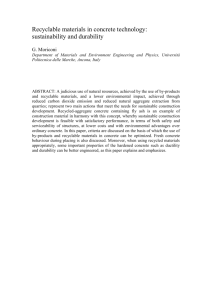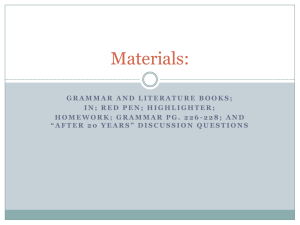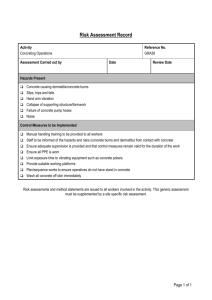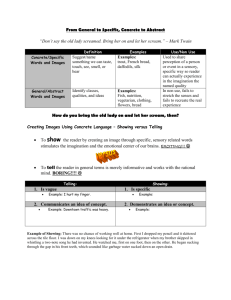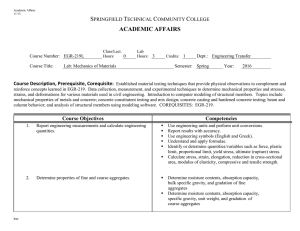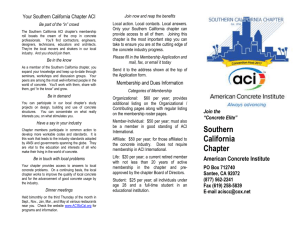DETAILS: CONCRETE, ABSTRACT, GENERAL, & SPECIFIC
advertisement
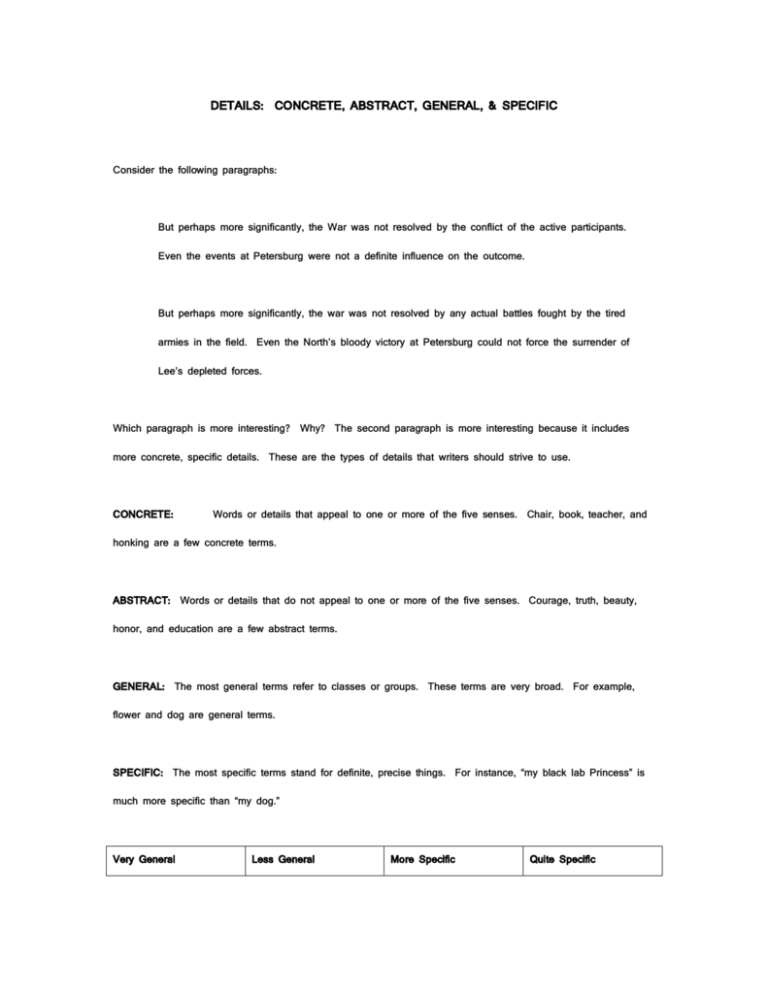
DETAILS: CONCRETE, ABSTRACT, GENERAL, & SPECIFIC Consider the following paragraphs: But perhaps more significantly, the War was not resolved by the conflict of the active participants. Even the events at Petersburg were not a definite influence on the outcome. But perhaps more significantly, the war was not resolved by any actual battles fought by the tired armies in the field. Even the North’s bloody victory at Petersburg could not force the surrender of Lee’s depleted forces. Which paragraph is more interesting? Why? The second paragraph is more interesting because it includes more concrete, specific details. These are the types of details that writers should strive to use. CONCRETE: Words or details that appeal to one or more of the five senses. Chair, book, teacher, and honking are a few concrete terms. ABSTRACT: Words or details that do not appeal to one or more of the five senses. Courage, truth, beauty, honor, and education are a few abstract terms. GENERAL: The most general terms refer to classes or groups. These terms are very broad. For example, flower and dog are general terms. SPECIFIC: The most specific terms stand for definite, precise things. For instance, “my black lab Princess” is much more specific than “my dog.” Very General Less General More Specific Quite Specific athlete baseball player Yankee outfielder Mickey Mantle criminal thief pickpocket Man who stole my wallet college student freshman boy in math class Bill Jones General: More Specific: He drives and old car. He drives a 1950 Buick. The boy has a serious disease. The boy has leukemia. Her mid-semester grades were poor. She received two failing grades.

